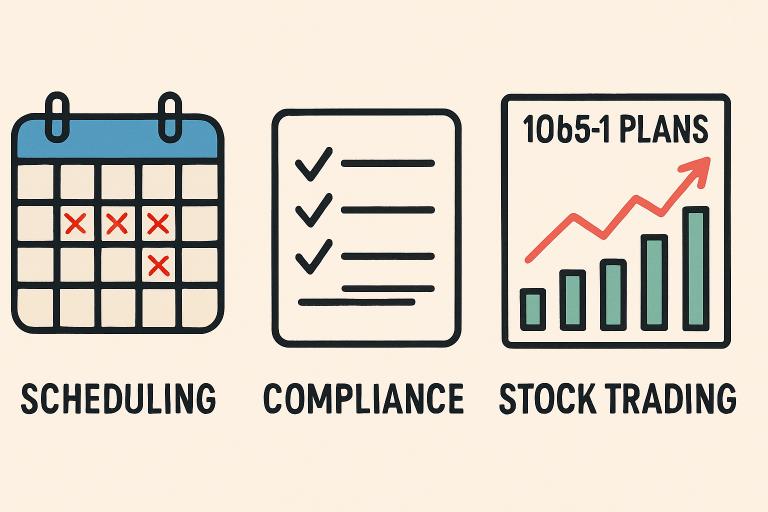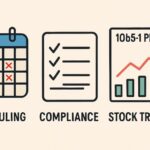Now Reading: Future-Proofing Your Career with Broad Business Skills
-
01
Future-Proofing Your Career with Broad Business Skills
Future-Proofing Your Career with Broad Business Skills

Introduction
As changes in technology, globalization, and organizational structures continue to reshape the workforce, professionals must stay ahead by actively building and maintaining a diverse toolkit of business competencies. Understanding the value of broad business skills not only fosters personal growth but also significantly increases employability and resilience in times marked by economic uncertainty or upheaval. More than merely adding to your resume, mastering these competencies prepares you to navigate complex challenges, adapt to new roles, and remain competitive across industries for years to come. For those considering advancing their education, there are MBA online programs no GMAT requirements, allowing individuals to develop these critical skills without traditional barriers, making advanced business education more accessible and flexible than ever before.
Today’s employers prioritize talent that adapts easily to a wide range of business scenarios, blending technical acumen with strong interpersonal abilities. Cultivating a broad set of business skills prepares professionals for their current roles. It positions them to take on multifaceted responsibilities, lead cross-functional teams, and pivot seamlessly as industries evolve. The demand for professionals who are equipped to step into new functions, manage diverse teams, and understand the bigger picture has never been greater. Whether you’re an early-career professional or a seasoned manager, investing in broad-based business learning is key to thriving over the long haul and securing your future in a rapidly changing environment.
Importance of Diverse Business Skills
The marketplace is rapidly shifting, with automation and artificial intelligence changing the fabric of traditional jobs. These technologies are transforming how tasks are accomplished and redefining which skills are most valuable to organizations. As a result, organizations increasingly value employees who are not restricted to a single function, but instead bring multidisciplinary perspectives to their work, seamlessly shifting from one role to another as needed. A recent Forbes report highlighted that a combination of hard and soft skills—like critical thinking, digital literacy, effective collaboration, and adaptability—can set professionals apart from the competition, enabling them to take on broader responsibilities and contribute to shaping business strategies that ensure corporate sustainability.
Embracing diverse business skills cultivates a sense of versatility, which is invaluable during times of change. It minimizes skill gaps during transition periods, ensuring you remain indispensable whether your company undergoes restructuring, merges with another entity, or launches into new markets. Employers today are actively looking for people ready to “wear many hats,” valuing employees who are resourceful, agile, and able to take on new challenges as business needs evolve. By developing a robust foundation across multiple competencies, professionals also demonstrate a proactive approach to personal and organizational growth, making them the go-to problem solvers and team members who can be relied on during uncertainty or crisis.
Key Areas to Develop
Focusing on certain core skills can significantly amplify your career prospects, regardless of your specific job title or industry. The most sought-after business skills include:
- Leadership and Emotional Intelligence:Effective leaders possess the capacity to inspire and empower teams, resolve conflicts constructively, and drive the company vision forward with clarity and purpose. Emotional intelligence—the ability to be attuned to one’s own emotions and those of others—fosters smoother collaboration, improves problem-solving, and strengthens decision-making in high-pressure situations. As organizations become more team-oriented, these skills often differentiate good managers from outstanding leaders.
- Digital Literacy:Familiarity with digital solutions, cloud-based tools, advanced data analysis, and evolving tech platforms is no longer optional in today’s workplace but has become a primary job requirement. These abilities enable professionals to leverage data, streamline work processes, and continuously innovate within their roles. Remaining conversant with emerging technologies ensures you can quickly adapt to new systems or tools, helping you stay relevant in your field.
- Analytical Thinking:Modern workplaces demand individuals who can interpret complex information, evaluate scenarios from multiple perspectives, and confidently implement strategic plans. Analytical thinkers excel at anticipating potential risks, identifying actionable insights from data, and seizing opportunities based on well-founded evidence. These skills are particularly crucial for decision-making roles, planning initiatives, and continuous improvement within organizations.
- Communication Skills:The ability to clearly convey ideas, actively listen, and tailor messages to diverse audiences is vital for working with colleagues, managing clients, and presenting to stakeholders. Effective communication ensures transparency, alignment, and efficiency within teams while preventing costly misunderstandings or conflicts. In both face-to-face and virtual settings, excellent communication enhances collaboration and supports positive workplace culture.
Strategies for Skill Acquisition
Building a robust, multidisciplinary skill set need not be a daunting or overwhelming process. Consider these proactive strategies to enhance your business skills, starting from wherever you are in your current career journey:
- Formal Education:Degree programs such as online MBAs offer broad-based learning in areas from finance and marketing to organizational leadership, strategic planning, and business analytics. Flexible options, like accredited online MBA programs, cater especially to working professionals seeking structured advancement without interrupting their careers. These programs typically emphasize practical application and encourage students to connect theory to real-world business scenarios.
- Workshops and Seminars:These events deliver practical, up-to-date knowledge while connecting you with industry peers and thought leaders. By attending conferences or enrolling in short-format training sessions, you stay current on industry trends, expand your professional network, and potentially open doors to new opportunities through these relationships.
- Online Courses:With platforms like Coursera and LinkedIn Learning, you can target niche areas of growth at your own pace, earning certifications that signal your expertise to employers. The subjects covered range from project management and digital marketing to data analytics and financial modeling, so that you can address specific gaps in your expertise.
- On-the-Job Experience:Volunteering for cross-functional projects, rotating to different departments, or simply stepping outside your comfort zone whenever possible will broaden your exposure across various business functions. First-hand experience complements formal training, sharpens practical skills, and increases your adaptability in handling multiple job roles.
Real-World Applications
The true value of broad business skills becomes apparent in day-to-day work scenarios that require flexible thinking and cross-functional collaboration. For instance, a marketing professional with strong financial acumen can design campaigns that remain within budget and maximize return on investment, greatly increasing their department’s impact on the business. Similarly, an IT manager who excels in communication is able to bridge gaps between technical and non-technical departments, facilitate clearer project requirements, accelerate project completion, and improve overall outcomes for stakeholders.
Mastering various business skills significantly increases your capacity to lead interdisciplinary teams, drive change initiatives, and contribute to organizational innovation. Broad business acumen is especially vital for aspiring executives and entrepreneurs, where long-term success hinges on integrating people management, market insight, financial acumen, and operational efficiency. This multidimensional expertise also makes it easier to seize new opportunities, change industries, or take on leadership positions that require a comprehensive understanding of how different facets of a business work together.
Conclusion
Preparing for long-term success in today’s unpredictable workplace requires cultivating a wide range of business skills. Pursuing formal education, professional certifications, and practical experience ensures your abilities align with employers’ shifting expectations. For example, institutions like St. Thomas University emphasize developing adaptable, cross-disciplinary competencies relevant across industries. A strong foundation in business knowledge enhances your value within any organization and supports ongoing growth and fulfillment. By embracing continuous learning and flexibility, you can confidently meet workplace changes, keeping your skill set relevant and resilient.




















